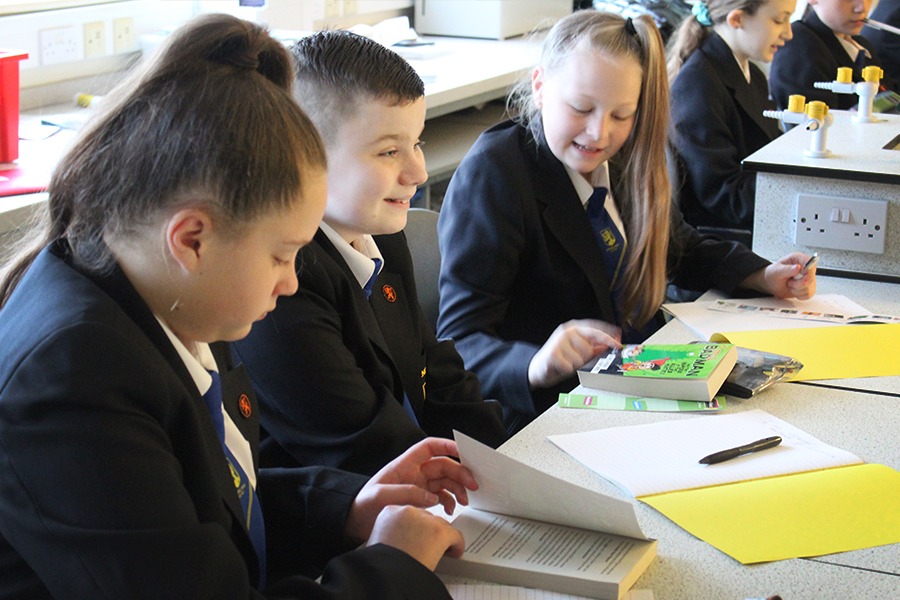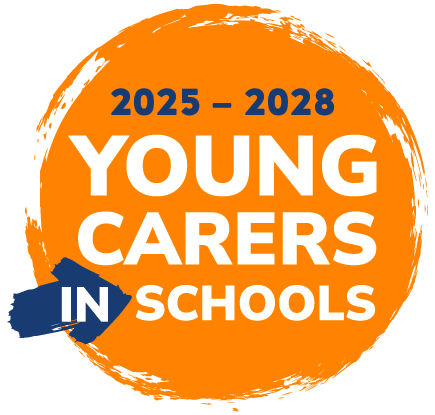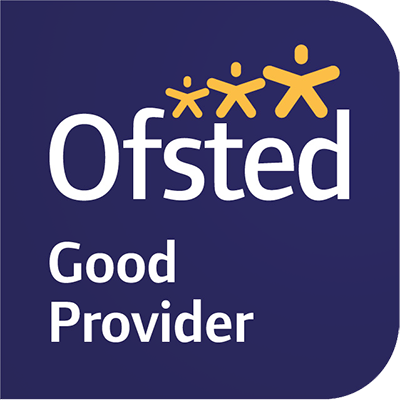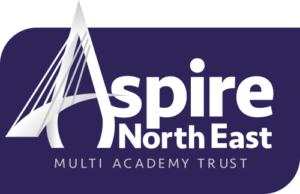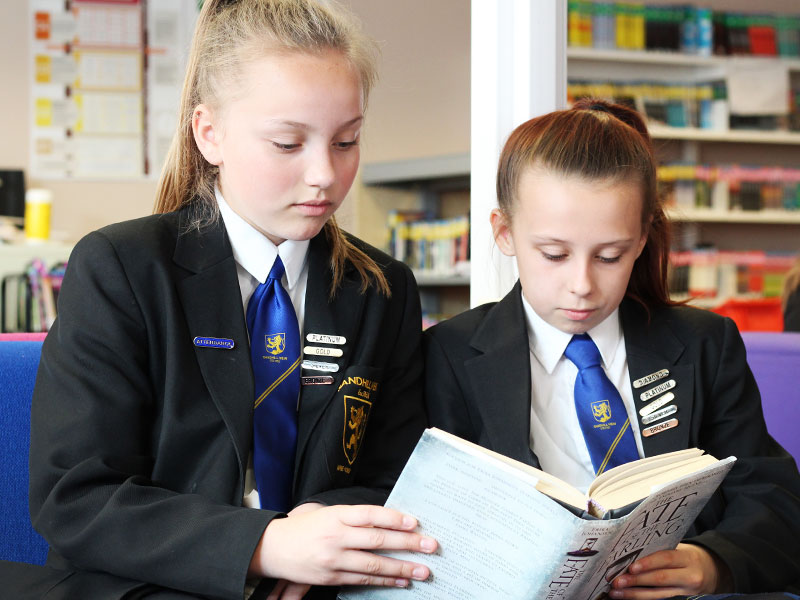
Literacy: A Whole School Approach
Developing literacy is of utmost importance at Sandhill View Academy and is promoted widely.
We aim to promote high standards of literacy by equipping students with a strong command of the written and spoken word and developing their love of language through reading for enjoyment.
All teachers have responsibility for raising literacy standards in their curriculum areas as we believe that the development of an effective literacy skillset is essential to achievement for our students. As such, all curriculum areas focus on improving literacy within their subject. This includes developing new subject specific vocabulary, both orally and in writing; refining reading skills, and improving grammatical accuracy. This ensures there is a consistent whole school approach to the way we teach and assess these skills across the school.
Meet Our Literacy Team
We have a dedicated ‘Literacy Team’, with clear roles and responsibilities, who work together to make sure literacy is continually at the top of our whole school improvement agenda.

Mrs DoddHeadteacher |

Miss ThompsonHead of English |

Mrs PatelKS3 English coordinator |

Miss SummersideSENDCO |

Mrs JacksonLRC/Reading Progress Manager |
Mrs DavisonReading Progress Manager |
Promoting a Love of Reading
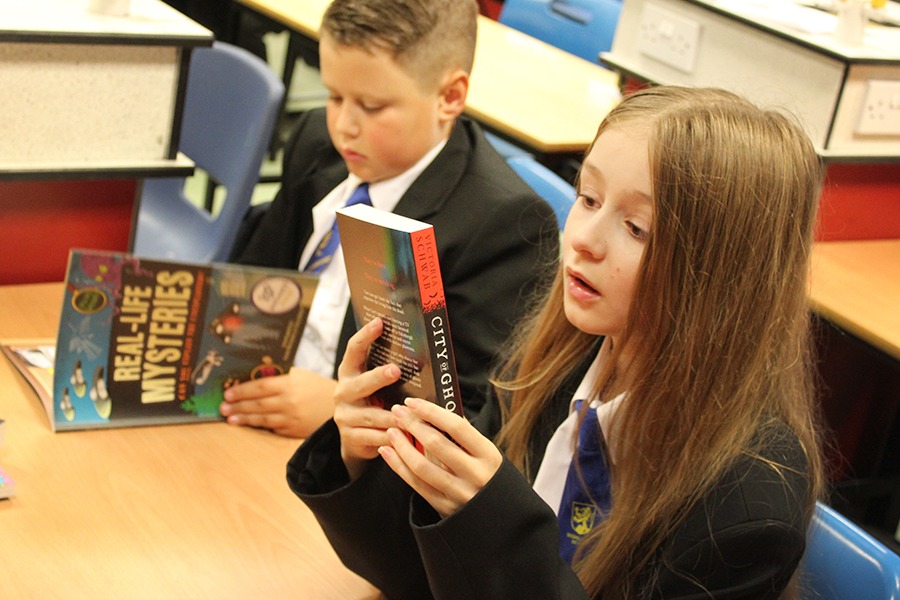
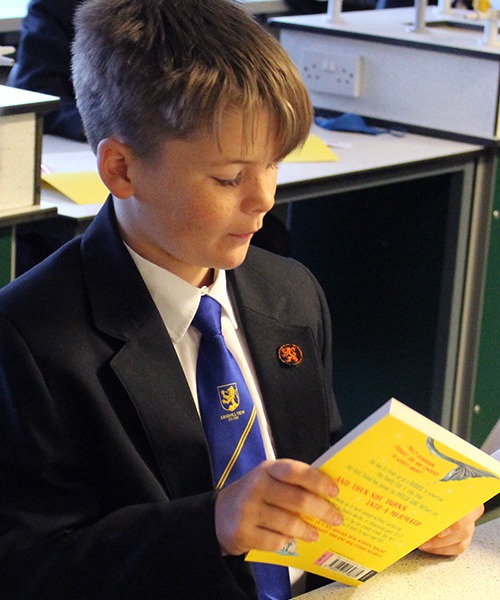 Book Buzz: Each year we subscribe to the Book Buzz programme and provide the gift of a free book to our Year 7 and 8 students. This helps to foster a love of reading in our students as they choose a book that matches their interests.
Book Buzz: Each year we subscribe to the Book Buzz programme and provide the gift of a free book to our Year 7 and 8 students. This helps to foster a love of reading in our students as they choose a book that matches their interests.
World Book Day: We participate in the annual celebration to promote our love of reading. Staff and students participate in literacy focused activities through the school such as reading and writing competitions, literacy quizzes and sharing our favourite stories with one another.
RISE Lessons: All Year 7 and 8 students receive a weekly reading lesson which we call RISE (Read, Investigate, Succeed and Enjoy). During these lessons, every class will focus on a novel which gives students the opportunity to develop their confidence in reading by practicing reading aloud and using key reading skills such as skimming and scanning to help develop their comprehension of a story.
The LRC: Our newly refurbished Learning Resources Centre has been designed in the style of a university library, with the intention of encouraging students to have the highest aspirations whilst equipping them with study skills to underpin their lifelong learning journey.
Literacy Across the Curriculum
Each term we focus on a literacy skill which is integrated into lessons across the curriculum. This starts in our Monday morning Personal Development lesson and tasks increase in difficulty throughout the term as students gain confidence and familiarity using them.

The Smart Student App
Our whole school approach to literacy is based around the concept of a smart phone, with a range of ‘Apps; for specific guidance. Our ‘Smart Student’ App posters are displayed in all classrooms to support consistency in our approach.
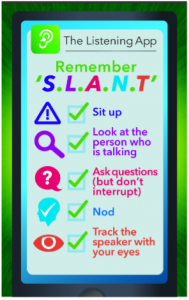
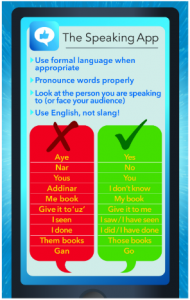
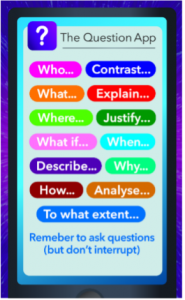 Oracy: students are expected to use standard English and full sentences in both the spoken and written form in all subjects. They develop an understanding of when standard English is needed and also when more colloquial forms may be used. Opportunities for oracy are built into schemes of learning and the importance of talk and discussion is valued.
Oracy: students are expected to use standard English and full sentences in both the spoken and written form in all subjects. They develop an understanding of when standard English is needed and also when more colloquial forms may be used. Opportunities for oracy are built into schemes of learning and the importance of talk and discussion is valued.


Vocabulary: words are the building blocks of language and as such, understanding vocabulary is of integral importance. Our ‘Key word app’ encourages students to de-code using the most common prefixes.
To support the explicit teaching of vocabulary, we have introduced an initiative called ‘The Power of Language’ to support not just knowledge, but a deep understanding of vocabulary.
PUSH: Vocabulary is introduced using the PUSH acronym, supporting students to ‘Pronounce, Use, Spell and Hear’ new words within their lessons. Students are given opportunities to recognise and understand key terms and subject vocabulary when they are used.
The Frayer model is used across all subjects to deepen students’ understanding of vocabulary. This involves exploring the root from which the word is derived, the context and how it may be used within a sentence.

Reading: All teachers encourage the use of a range of reading approaches, as applied to different purposes shown in our ‘Reading App.

Writing: Students develop an understanding of the importance of accuracy in spelling, punctuation, and grammar in the written word. As part of Unlock (our recovery curriculum) in English, all Year 7 and 8 receive a weekly writing skills lesson to reinforce key spelling, grammar, and punctuation skills. These are further embedded into all subjects as teachers plan for and assess these key skills.
Marking and feedback: Literacy codes are used to ensure all grammatical errors are identified and then corrected by students. During both self and peer assessment tasks, students also use the literacy marking codes to practice identifying and correcting their own errors which promotes an independent approach towards a continued learning of literacy.
Marking & Feedback at SHV
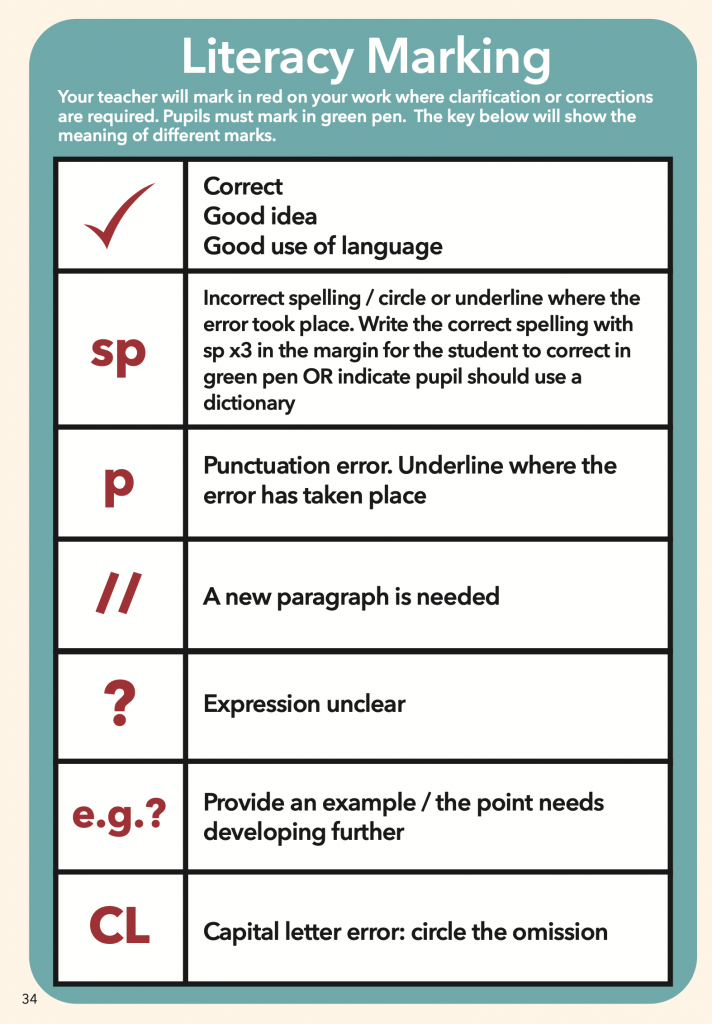 Additional codes for MFL:
Additional codes for MFL: T = tense G = gender AA = adjectival agreement A = accent WO = word order
Enhanced Literacy Support
Accelerated Reader
Accelerated Reader is the one of most widely used literacy interventions we have in place. It enables students to access the curriculum, the crux of what effective learning is about.
Accelerated Reader is a simple programme:
A student reads a book – takes an online quiz – gets immediate feedback.
Students respond to regular feedback and are motivated to make progress with their reading skills.
Students develop reading skills most effectively when they read appropriately challenging books – difficult enough to keep them reading but not so difficult that they become frustrated. Regular Star Reading assessments determine each student’s current reading level.
Students become more enthused and the standard of reading increases substantially in terms of difficulty level and they read deeper and longer texts – all of which we see as evidence of students improving their reading habits.
The Accelerated Reader virtual bookshelf logs all books that have been read and understood by a student. This enables staff to understand their reading habits and plan next steps.
Parents are able to log in and view the bookshelf from home, as well as their child’s progress.
The ‘ BookFinder’ website is a public search engine allowing students, teachers and parents to find appropriate books that interest every reader.
An NLT report titled ‘Reading Engagement, Behaviour and Attitudes in Pupils who use Accelerated Reader’ confirms that, compared to their peers, Accelerated Reader users are more likely to: Enjoy reading, have a favourite book, think that reading is cool and read regularly outside class.
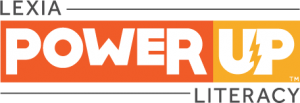
LEXIA Power-up
Lexia Powerup is a highly personalised, computer-based literacy instruction, specifically designed to support students to become more proficient readers and confident learners. It blends online student driven learning with offline teacher delivered lessons and activities. It can be accessed both at school and at home.
Selected students initially complete an assessment which automatically places them at the appropriate starting point on the programme of their personalised learning pathway. They then work independently, at their own pace, to develop critical reading and language skills.
The programme’s software tracks student progress, automatically identifying any skill areas in which a student requires extra support. Lexia provides extra online practice through scaffolding and explicit instruction. By continually adapting to the individual progress of each student, Lexia can target the specific needs of individuals. Extra support and practice are also provided through paper-based skill builders, which allow students to practice their newly acquired skills, and through individual lessons when more direct instruction is required.
Students are supported to work independently and can decide which skills to work on, allowing them to be self-directed in their learning. A personalised dashboard enables students to view their progress and encourages students to take ownership of their learning by setting and managing goals.
As students work through online activities, real-time performance data is collected through an embedded assessment tool and can be viewed online by teachers. The data identifies the skill areas in which a student is currently working, specific skills with which they need instruction, usage based on their recommended minutes and completed levels.
Personalised Literacy Interventions
Where tracking data identifies a need, weekly personalised literacy interventions are delivered to students targeting word study, grammar and comprehension skills. Such intervention includes the following:
- Short comprehension tasks to develop core understanding of texts
- Word searches individually designed by staff; whereby the most challenging lexis is selected from RISE lessons and utilised in intervention lessons to reinforce and embed new vocabulary
- Synonym and antonym tasks based on vocabulary from RISE lessons
- Skill builders generated on Lexia
Such literacy intervention aims to support a cross-curricular approach by linking key vocabulary across RISE and literacy intervention assignments, whilst building student’s pattern recognition skills, spelling skills and vocabulary expansion.





